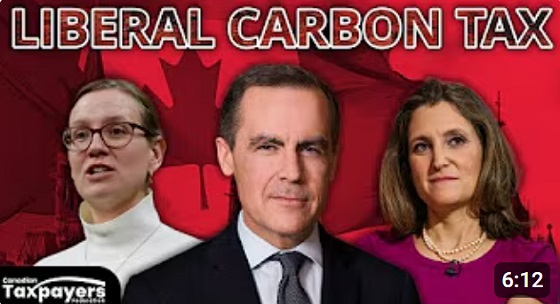Business
Every Federal Regulator Destroys 138 Jobs

From the Brownstone Institute
By
This lost output is made of jobs and businesses that were never started. Or were stunted by strangling regulations — mom and pops chased into bankruptcy as collateral damage to new regulations — say, a diner forced to spend $30,000 on a low-energy exhaust fan.
An Auburn University study says every single regulator destroys fully 138 private sector jobs every year you keep him on the job.
With nearly 300,000 federal regulators, the shock is that we still have any jobs at all.
The Two Scariest Words in the English Language
A lot of the excitement around the Department of Government Efficiency — DOGE — focuses on the dollars saved. But more important is all the things the federal government destroys with those dollars.
Specifically, the millions of jobs destroyed by the two scariest words in the English language: federal regulators.
A few weeks ago I mentioned how DOGE under Elon and Vivek is taking aim at the regulatory mothership that strangles the American economy and fuels the totalitarian administrative state — you may remember it from Covid.
A mother ship that is oddly enough unconstitutional according to a pair of recent Supreme Court decisions — Loper Bright Enterprises v Raimondo and West Virginia v EPA.
I asserted this could unleash the economy like nothing we’ve seen in the past century.
And the reason is because it’s hard to overstate just how destructive regulations are.
Every Regulator Destroys 138 Jobs
One 2017 study by the Phoenix Center and Auburn University found that every single full-time regulator destroys 138 jobs.
GDP-adjusted to today, that translates to $16.5 million of economic output. For a hundred-thousand dollar bureaucrat.
This lost output is made of jobs and businesses that were never started. Or were stunted by strangling regulations — which are generally bought by big corporations specifically to strangle small competitors.
Along with mom and pops chased into bankruptcy as collateral damage to new regulations — say, a diner forced to spend $30,000 on a low-energy exhaust fan.

So it’s not the bureaucrat’s hundred thousand salary that matters. It’s the 138 jobs he takes out. Every single year you keep him around.
In fact, you could fire him, keep paying him for life, and still put a hundred families in the middle class.
In recent videos I’ve mentioned research saying one dollar in taxes destroys 3 dollars in GDP. A regulator blows that out of the water — each dollar in regulator salary destory 112 dollars in output.
Given there’s roughly 288,000 full-time federal employees involved in regulatory activities, that implies an annual cost of regulation of around $5 trillion. One-fifth of our entire economy.
This means DOGE slashing tens of thousands of regulations could spark Morning in America even if we keep every last one of them on the payroll.
The Top 3 Regulatory Offenders
The worst 3 regulatory offenders are the EPA, which prey especially on small businesses least able to afford their never-ending mandates.
Second is securities mandates — namely Dodd-Frank and Sarbanes-Oxley — that have all but closed public markets to start-ups and shelter banks and insurers from competition.

And labor regulations — namely FLRA, NLRB, an alphabet soup including Obamacare mandates and occupational licensing. There are brutal for small businesses that might take a gamble on marginal workers but are locked in.
And they raise the cost of hiring to the point that companies downsize or move to China to survive.

Of course, these are just the start. The regulatory code has grown like a monster for a hundred years in literally every domain you can imagine, from braiding hair to collecting rainwater on your property to giving health advice — which is illegal unless you’re a doctor.
And, my personal favorite, the regulatory mandate to literally add poison — ethanol — to any alcohol that’s not taxed, including mouthwash. In case you thought the federal government would never poison you on purpose.
What’s Next
Deregulation is central to Trumponomics — low inflation and fast growth.
Because the best way to do both is to reduce the federal burden — the spending, sure, but above all the forest of regulations strangling our economy. Even if DOGE doesn’t manage to save a penny, gutting the regulatory state will pay us back 138-fold.
Republished from the author’s Substack
2025 Federal Election
MEI-Ipsos poll: 56 per cent of Canadians support increasing access to non-governmental healthcare providers

-
Most believe private providers can deliver services faster than government-run hospitals
-
77 per cent of Canadians say their provincial healthcare system is too bureaucratic
Canadians are increasingly in favour of breaking the government monopoly over health care by opening the door to independent providers and cross-border treatments, an MEI-Ipsos poll has revealed.
“Canadians from coast to coast are signalling they want to see more involvement from independent health providers in our health system,” explains Emmanuelle B. Faubert, economist at the MEI. “They understand that universal access doesn’t mean government-run, and that consistent failures to deliver timely care in government hospitals are a feature of the current system.”
Support for independent health care is on the rise, with 56 per cent of respondents in favour of allowing patients to access services provided by independent health entrepreneurs. Only 25 per cent oppose this.
In Quebec, support is especially strong, with 68 per cent endorsing this change.
Favourable views of accessing care through a mixed system are widespread, with three quarters of respondents stating that private entrepreneurs can deliver healthcare services faster than hospitals managed by the government. This is up four percentage points from last year.
Countries like Sweden and France combine universal coverage with independent providers and deliver faster, more accessible care. When informed about how these health systems run, nearly two in three Canadians favour adopting such models.
The poll also finds that 73 per cent of Canadians support allowing patients to receive treatment abroad with provincial coverage, which could help reduce long wait times at home.
Common in the European Union, this “cross-border directive” enabled 450,000 patients to access elective surgeries in 2022, with costs reimbursed as if they had been treated in their home country.
There’s a growing consensus that provincial healthcare systems are overly bureaucratic, with the strongest agreement in Alberta, B.C., and Quebec. The proportion of Canadians holding this view has risen by 16 percentage points since 2020.
Nor do Canadians see more spending as being a solution: over half say the current pace of healthcare spending in their province is unsustainable.
“Governments shouldn’t keep doubling down on what isn’t working. Instead, they should look at what works abroad,” says Ms. Faubert. “Canadians have made it clear they want to shift gears; now it’s up to policymakers to show they’re listening.”
A sample of 1,164 Canadians aged 18 and older was polled between March 24th and March 28th, 2025. The margin of error is ±3.3 percentage points, 19 times out of 20.
The results of the MEI-Ipsos poll are available here.
* * *
The MEI is an independent public policy think tank with offices in Montreal, Ottawa, and Calgary. Through its publications, media appearances, and advisory services to policymakers, the MEI stimulates public policy debate and reforms based on sound economics and entrepreneurship.
2025 Federal Election
POLL: Canadians say industrial carbon tax makes life more expensive

The Canadian Taxpayers Federation released Leger polling showing 70 per cent of Canadians believe businesses pass on most or some of the cost of the industrial carbon tax to consumers. Meanwhile, just nine per cent believe businesses pay most of the cost.
“The poll shows Canadians understand that a carbon tax on business is a carbon tax on Canadians that makes life more expensive,” said Franco Terrazzano, CTF Federal Director. “Only nine per cent of Canadians believe Liberal Leader Mark Carney’s claim that businesses will pay most of the cost of his carbon tax.
“Canadians have a simple question for Carney: How much will your carbon tax cost?”
The federal government currently imposes an industrial carbon tax on oil and gas, steel and fertilizer businesses, among others.
Carney said he would “improve and tighten” the industrial carbon tax and extend the “framework to 2035.” Carney also said that by “changing the carbon tax … We are making the large companies pay for everybody.”
The Leger poll asked Canadians who they think ultimately pays the industrial carbon tax. Results of the poll show:
- 44 per cent say most of the cost is passed on to consumers
- 26 per cent say some of the cost is passed on to consumers
- 9 per cent say businesses pay most of the cost
- 21 per cent don’t know
Among those decided on the issue, 89 per cent of Canadians say businesses pass on most or some of the cost to consumers.
“Carbon taxes on refineries make gas more expensive, carbon taxes on utilities make home heating more expensive and carbon taxes on fertilizer plants increase costs for farmers and that makes groceries more expensive,” Terrazzano said. “A carbon tax on business will push our entrepreneurs to cut production in Canada and increase production south of the border and that means higher prices and fewer jobs for Canadians.”
-

 Bruce Dowbiggin2 days ago
Bruce Dowbiggin2 days agoIs HNIC Ready For The Winnipeg Jets To Be Canada’s Heroes?
-

 COVID-192 days ago
COVID-192 days agoCOVID virus, vaccines are driving explosion in cancer, billionaire scientist tells Tucker Carlson
-

 Dr. Robert Malone2 days ago
Dr. Robert Malone2 days agoThe West Texas Measles Outbreak as a Societal and Political Mirror
-

 illegal immigration1 day ago
illegal immigration1 day agoDespite court rulings, the Trump Administration shows no interest in helping Abrego Garcia return to the U.S.
-

 Health2 days ago
Health2 days agoHorrific and Deadly Effects of Antidepressants
-

 2025 Federal Election1 day ago
2025 Federal Election1 day agoConservative MP Leslyn Lewis warns Canadian voters of Liberal plan to penalize religious charities
-

 2025 Federal Election1 day ago
2025 Federal Election1 day agoEuthanasia is out of control in Canada, but nobody is talking about it on the campaign trail
-

 Education1 day ago
Education1 day agoSchools should focus on falling math and reading grades—not environmental activism








